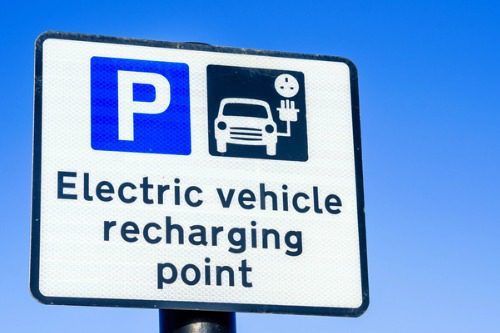What you need to know about the UK’s charging infrastructure

Authored by NIG
The UK government recently announced it will be ending the plug-in car grant scheme to new orders of electric vehicles (EVs). While the scheme has supported the sale of nearly half a million electric cars, the government says it’s now time to focus on improving the country’s charging network instead.
Knowledge of the UK’s charging infrastructure is crucial for businesses that are considering a shift to EV fleets, and we’re on hand to help – here are the main things you need to know about the UK’s charging infrastructure.
The current situation
According to the SMMT, the UK’s ratio of chargers to electric cars is one charger per 32 battery electric vehicles. China has the best ratio of 1:11 and is followed by South Korea 1:12 and Japan 1:17.
There are currently 32,312 charging points across the UK across 19,945 charging locations – not including charging points installed at homes or at workplaces, which are believed to exceed 40,000.
There are also over 5,700 rapid and ultra-rapid charging devices – located on motorway services – across the UK.
Three key challenges
1. Too much demand
Between 2019 and 2021, the number of electric vehicles rose by more than 280% but public charge points only increased by just 69.8%.
The UK needs more charging points to keep up with the rise of electric vehicles and needs to increase the pace at which charging points are rolled out – chargepoint installers sometimes need multiple permissions, consents and licences, which adds time and cost to deployment.
2. Unequal geographical spread of charge points
There is disparity in regional EV charging points. In London, there are approximately 102 public charging devices per 100,000 of population, compared to 26 in Yorkshire and the Humber.
Fleet News states the Transport for the North has “launched a regional steering group bringing together a number of stakeholders and energy sector organisations.”
The uneven distribution of charge points per 100,000 in various regions may present challenges to drivers on longer journeys across the UK that businesses will have to consider.
3. Charging on the road
Another common challenge faced by businesses is the ability to charge on the road. Drivers may need to charge away from their place of work on long haul journeys. There are now over 40,000 charge points located across the UK according to ZapMap.
With more EVs set to be on the road, the ability to roam between charge networks, use booking systems, and good charge point maintenance will become more and more essential for fleet managers.
The UK needs to pay attention to rural, remote areas where there is insufficient capacity of electricity to introduce a charging point. Numerous chargepoint operators have new chargepoints installed, but are waiting for a grid connection so that they can be turned on.
What does the future have in store?
The government has invested £1.6 billion towards the ‘Electric Vehicle Infrastructure’ strategy which aims to install 300,000 public electric charging points across the country by 2030.
£20 million has been invested towards the On-Street Residential Chargepoint Scheme, which could see the number of on-street EV chargers double.
New regulations also mean homes built in England will now be required to have electric car chargers installed, as well as new-build workplaces, supermarkets and buildings undergoing major renovations.
All of these investments and new regulations indicate that the UK is keen to improve its charging infrastructure and increase the number of EVs on the road.
NIG’s EV capabilities
We have extended our Fleet & Mini Fleet wordings to include cables and batteries for EVs, as well as cover for EV charge points. We continue to grow our established appetite in the EV market.
To find out more about our EV insurance capabilities, please speak to your local underwriter.




